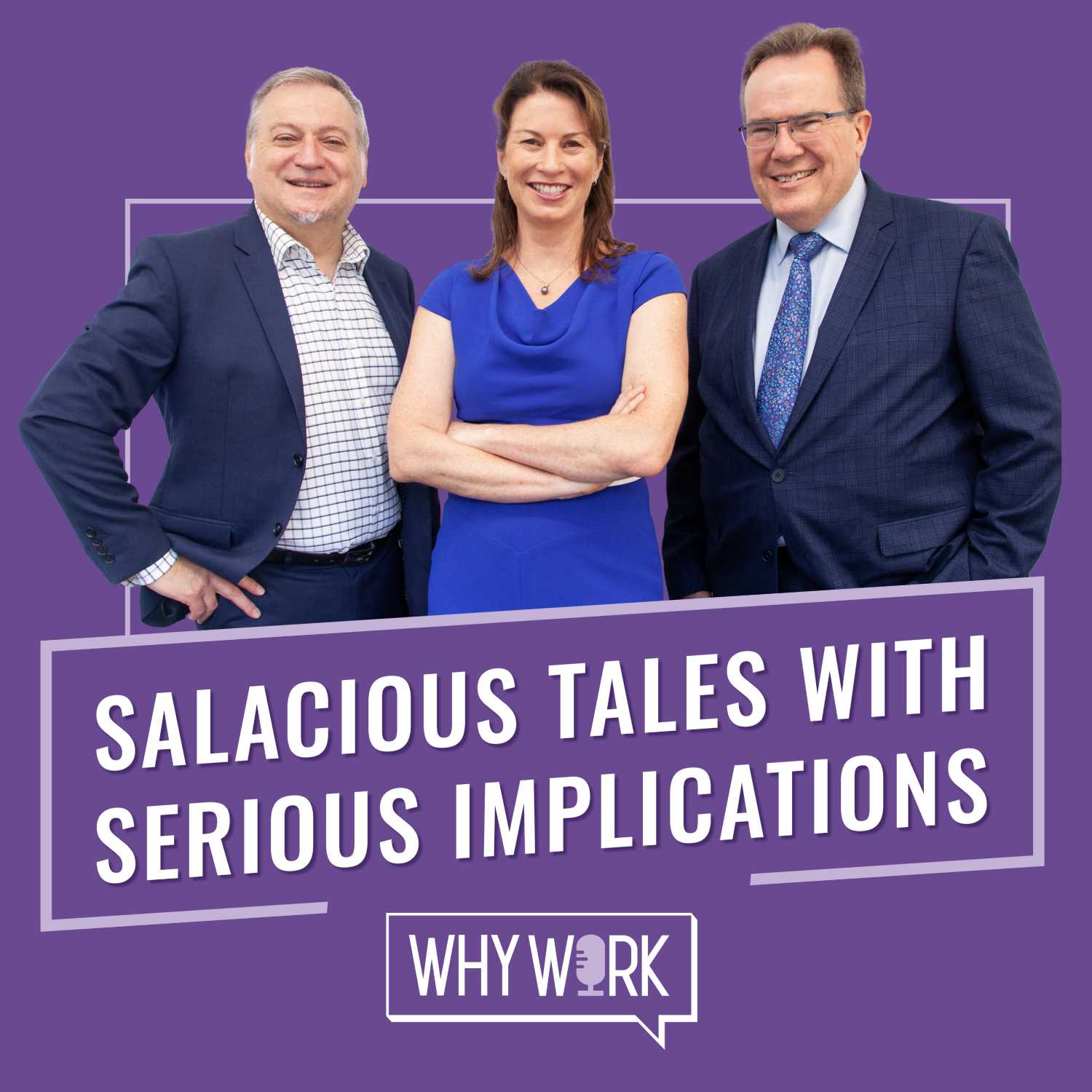S04 E05: To live is to be anxious, especially in the toxic workplace
Description
WARNING: Suicide is mentioned in this episode.
Season 04 Episode 05: Trajce introduces the idea of psychosocial factors causing work-related mental health disorders and psychological injury in a case in Victoria that led to the reguator's prosecution of a government agency. Alan explains that the injured person in this case committed suicide and even though this loss of life was not directly related to the workplace dynamics, the prosecution fine was significant. "This case," Alan recalls, "demonstrates that the public sector is not immune to prosecution."
Trajce speaks on Brodie’s law, Victorian anti-bullying June 2011 legislation that made serious workplace bullying a criminal offence, punishable by up to 10 years in jail. The courts instituted this law after the tragic suicide of a young woman, Brodie Panlock, who was subjected to relentless bullying at work.
Sara introduces the idea of the ‘Enduring Impact’ of good design, the new ‘EI’, instead of ‘Emotional Intelligence’, she discusses the ‘Enduring Impact’ of design strategy. She urges workplaces to synthesise codes of practices and ISO standards on hazard types in an integrated whole-of-person and work system design practice. This approach compels businesses to consider who is most vulnerable in the workplace and what circumstances cause vulnerability among workers, especially when “To live is to be anxious” she theorises.
This episode aligns well with Season 01 Episode 05: Kozarov and the need for purpose.
Tip: Here are resources on recovery-oriented language.
More Episodes
Season 06 Episode 04: A bonza boom & crash: Decommissioning with dignity
Trajce and Sara compliment Alan’s dress sense - smooth, Italian, Mafioso, modelled after a Kappa soccer sports brand, while Sara reflects on her ‘rugby mum’ look for the day. Trajce teases Sara with her unlaced shoes in...
Published 09/23/24
Published 09/23/24
WhyNOT? A Wisdom Shot: BONUS. Respectful workplaces contrast with those in which managers demand working to unrealistic standards. Trajce cautions, "Attitudes like this could be construed as belittling, bullying, and harassment."
For more on this topic, listen to S05 E11: German work.
Published 09/18/24


